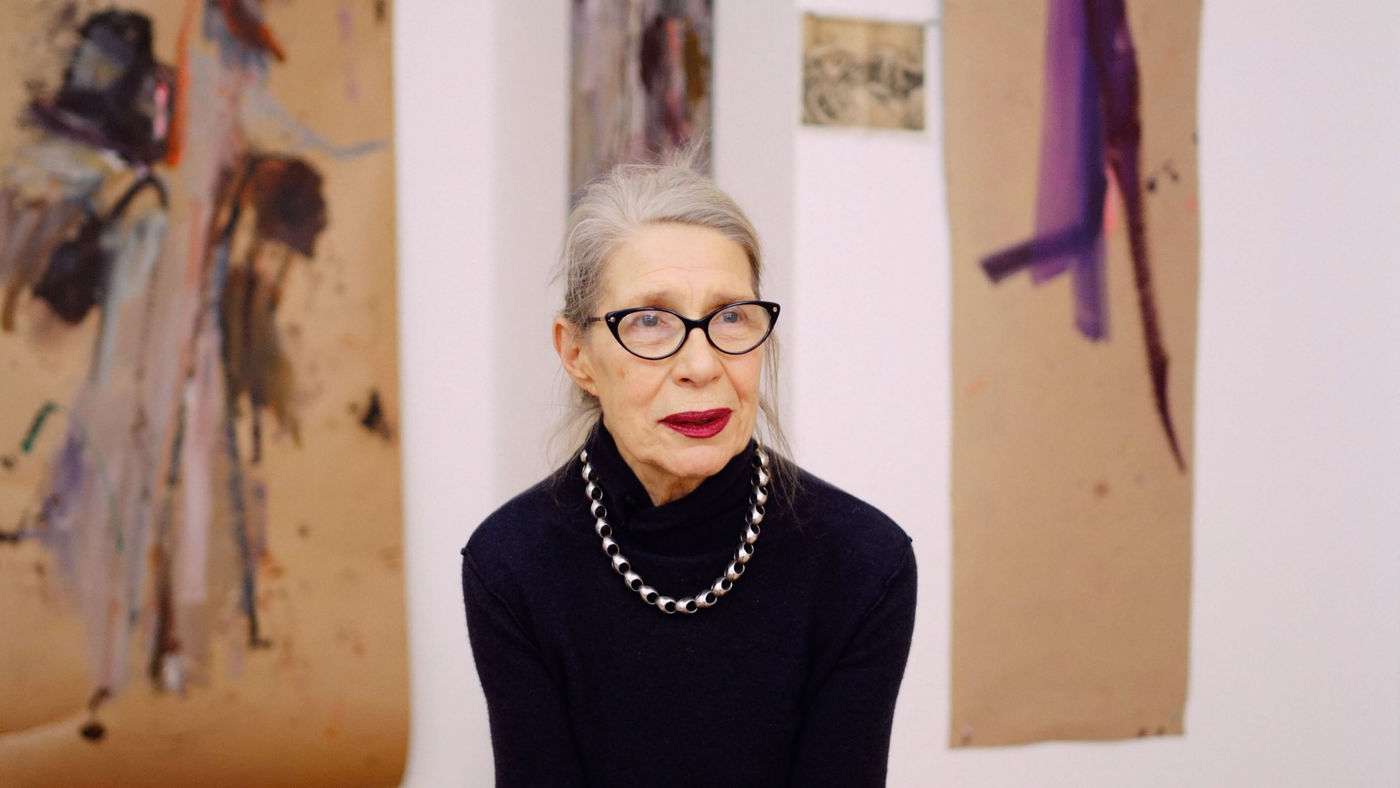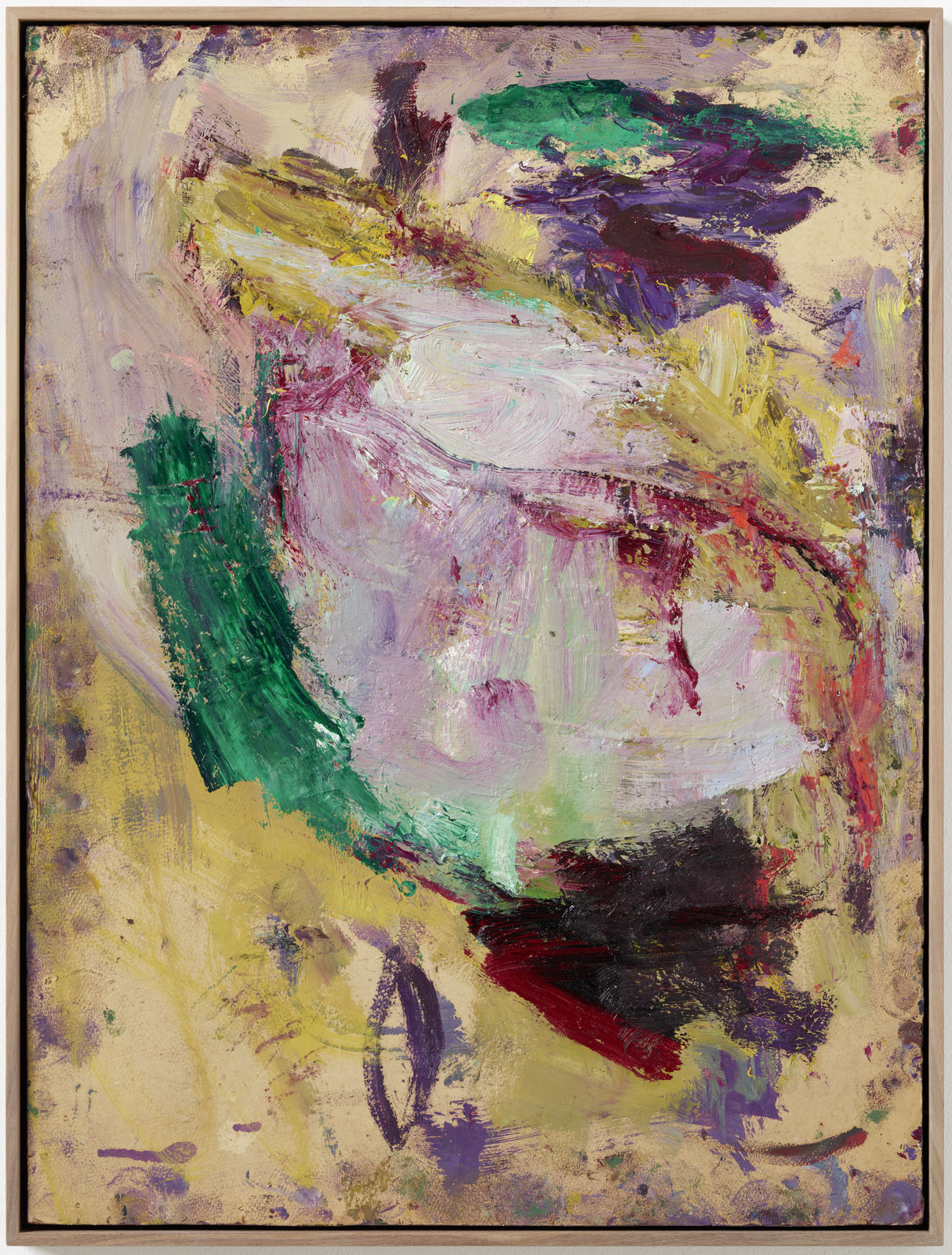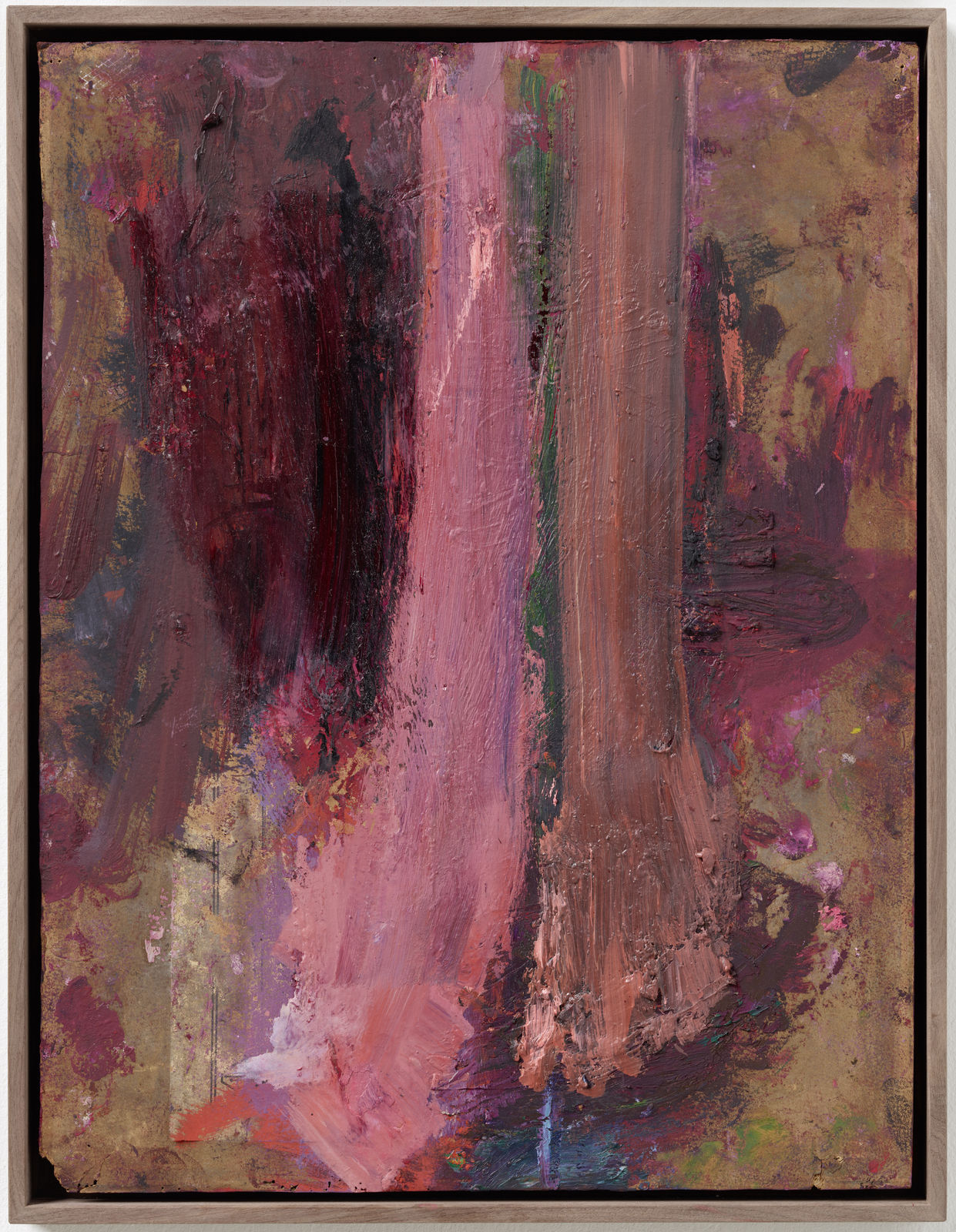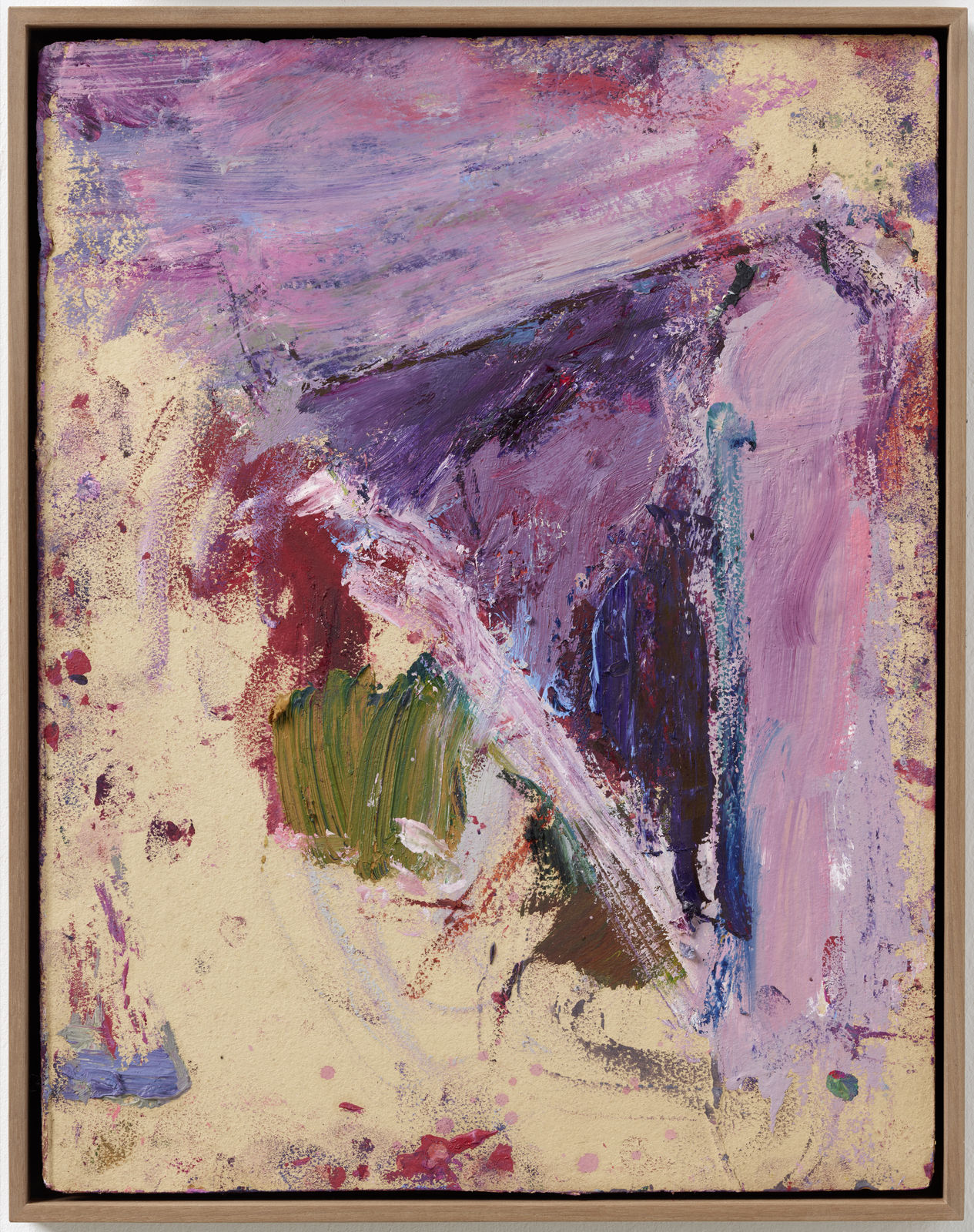My pictorial reality is charged with passion, a language tied to the body, to dynamic movement. Painting is a matter of form, and then it receives a soul – through me.
— Martha Jungwirth
In her new series of paintings, Austrian artist Martha Jungwirth captures fleeting, internal impulses – often inspired by impressions from her travels, friends and companions, Greek mythology, art history, contemporary politics and popular culture. Bridging abstraction and figuration, her works are grounded in closely observed perceptions of both her interior and exterior worlds.
The exhibition’s title, All Will Fall, is borrowed from an etching in Francisco Goya’s Los Caprichos (1797–99), a group of works satirising Spanish society. Jungwirth’s Nicht mehr und nicht weniger series is titled after one of these etchings, Ni mas ni menos (Neither more nor less; 1797–98), in which Goya caricatures the painter as a monkey and the sitter as a donkey, poking fun at the vanity and flattery involved in portraiture.

In Vuelo de brujas (Witches’ Flight; c. 1798), Goya depicts a writhing mass of levitating witches who appear to devour a figure in their midst, to the horror of onlookers. The subject of witchcraft carries with it associations with the historical perception of women in power and the threat this has represented for men over the centuries. While abstracted, the brightened colour palette of Jungwirth’s Hexenflug series reflects the muted pinks, greens and golds of the hats and breeches worn by Goya’s witches.
Ohne Titel, aus der Serie "Hexenflug", 2022
Oil on paper on canvas
253.5 x 62 cm (99.8 x 24.4 in)
(MJ 1170)
Traditionally associated with the supernatural, the occult, and forces of evil, witchcraft also carries with it positive connotations, such as the powers of intuition, healing and an intimate connection to the forces of nature.

In Ohne Titel (Tulpenstrauß), the artist suggests without actually depicting the titular bunch of tulips, their dark purple flowers drooping from curved stems that seem unable to support their own weight. In the vanitas tradition, still lifes of fading flowers were a metaphor for the transience of human life and its pleasures.
Ohne Titel (Tulpenstrauß), 2022
Oil on paper on canvas
238.6 x 300.5 cm (93.9 x 118.3 in)
(MJ 1173)

These ‘pretexts’ are only obliquely referenced by Jungwirth, however, whose dynamic compositions become writhing, gestural movements of colour and texture. As with all of her subjects, these figures remain beyond the easily identifiable, her forms shifting between the realms of the real and imagined, the embodied and transcendent.
Ohne Titel, aus der Serie "Hexenflug", 2022
Oil on paper on canvas
238.5 x 277.4 cm
(MJ 1165)
My art is like a diary, seismographic. That is the method of my work. Drawing and painting are a movement that runs through me. The image is an intelligent structure of lines and blotches, nothing stuck. It’s about the fluid, the transparent, the open. I am not interested in the noble, but the sore, not embellished, uncensored.
— Martha Jungwirth

Over the past six decades, Jungwirth has forged a singular approach to painting. In contrast to the rational principles of Minimalism and Conceptualism that emerged in the 1960s and 1970s, her paintings are grounded in the body and convey a palpable sense of self. Finger marks, scratches and even shoeprints remain as a visceral record of her presence in the work.
Ohne Titel, aus der Serie "Nicht mehr und nicht weniger", 2021
Oil on cardboard (painting back)
64 x 48 cm
(MJ 1175)

About the artist
Martha Jungwirth was born in 1940 in Vienna, where she continues to live and work. A career retrospective spanning five decades was shown at the Kunsthalle Krems in 2014, followed by an exhibition focusing on her watercolours at the Kunstmuseum Ravensburg in 2018. That same year, she received the prestigious Oskar Kokoschka Prize awarded by the Austrian state, accompanied by an extensive solo exhibition at the Albertina in Vienna. A retrospective at the Museum Liaunig in Neuhaus marked the occasion of the artist’s 80th birthday in 2020. The following year, she was awarded the Grand Austrian State Prize, the Republic's highest commendation for an outstanding life's work in the field of art. In 2022, the Kunsthalle Düsseldorf will present an extensive solo exhibition of her oeuvre.



























































































































































































